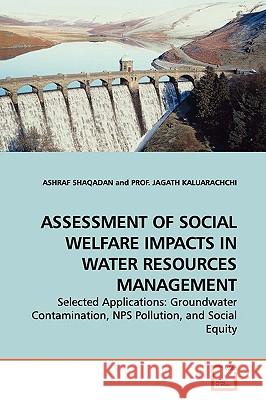Assessment of Social Welfare Impacts in Water Resources Management » książka
Assessment of Social Welfare Impacts in Water Resources Management
ISBN-13: 9783639141993 / Angielski / Miękka / 2009 / 148 str.
Decision making in water resources is faced with uncertainties associated with environmental and social variables. Decision makers have precious finite resources and a wide range of variables that can be considered to improve watershed management. Therefore, characterizing the feasibility of investment in improving management of related variables is desirable yet complicated. A new practical framework is developed to assess the socioeconomic value of decisions to reduce uncertainty in system variables or to improve social equity in water resources management. The developed framework employs advanced social welfare concepts to elicit the population willingness-to-pay to obtain benefits of considered decisions. The framework robustness is established using common water resources problems including groundwater contamination, NPS pollution prediction, and social equity in allocation of remediation cost.
Decision making in water resources is faced with uncertainties associated with environmental and social variables. Decision makers have precious finite resources and a wide range of variables that can be considered to improve watershed management. Therefore, characterizing the feasibility ofinvestment in improving management of related variables is desirable yet complicated.A new practical framework is developed to assess the socioeconomic value of decisions to reduce uncertainty in system variables or to improve social equity in water resources management. The developed framework employs advanced social welfare concepts to elicit the population willingness-to-pay to obtain benefits of considered decisions. The framework robustness is established using common water resources problems including groundwater contamination, NPS pollution prediction, and social equity in allocation of remediation cost.











